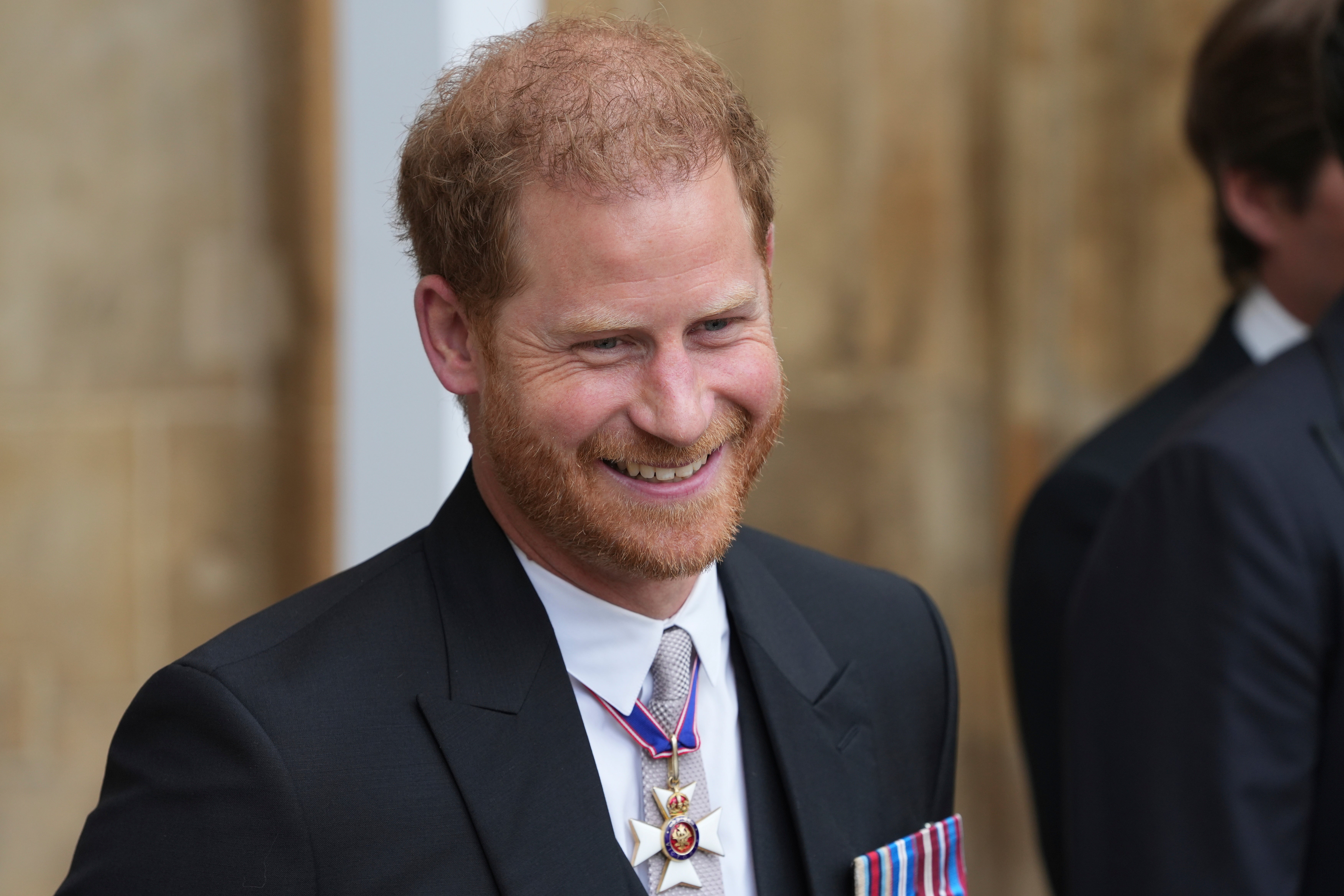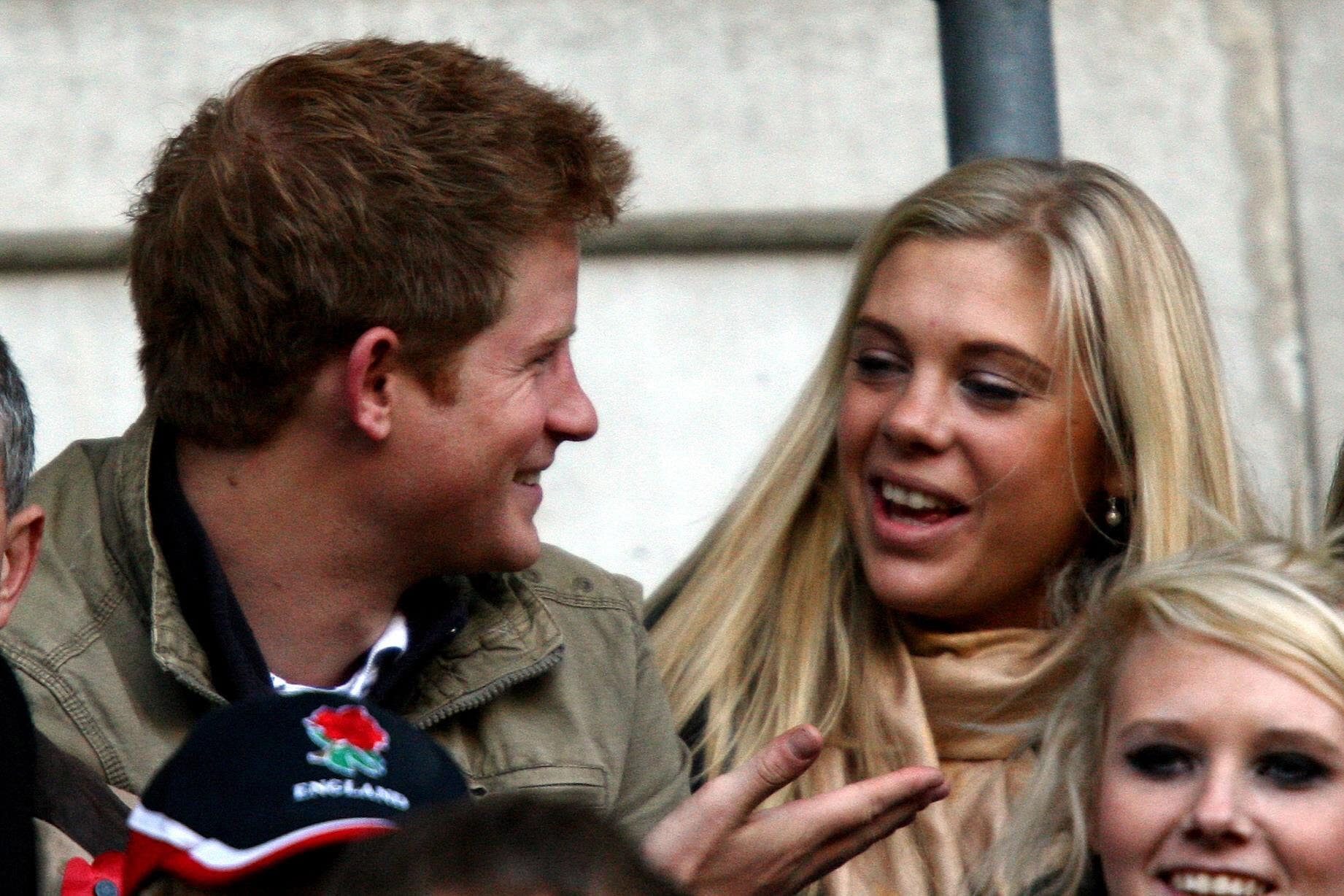Mirror publisher says sorry to Prince Harry in phone-hacking trial
Duke of Sussex and celebrities bringing claims against MGN amid allegations millions was spent snooping on Charles and Diana among others

The publisher of the Daily Mirror has apologised “unreservedly” to Prince Harry for an instance of unlawful information-gathering, at the start of a trial into alleged phone-hacking.
In a written submission, it was alleged that Mirror Group Newspapers (MGN) had spent millions on private investigators to keep track of celebrities, and that the company had targeted Harry’s parents, the then Prince and Princess of Wales.
The Duke of Sussex and a number of high-profile celebrities, including the actor Ricky Tomlinson and the estate of the late singer George Michael, are bringing claims against MGN.
The court was told that the “systemic” use of private investigators by journalists to obtain private information unlawfully was authorised by senior editors, including Piers Morgan, at the group’s titles.
MGN said in a written submission that it “unreservedly apologises” to the duke for one instance of unlawful information-gathering.
The group, which publishes the Daily Mirror, the Sunday Mirror and the Sunday People, said it accepted Harry was entitled to “appropriate compensation”.
Andrew Green KC, representing MGN, said a private investigator was instructed by an MGN journalist at the Sunday People to unlawfully gather information about the prince’s activities at the Chinawhite nightclub in February 2004.
Aside from this instance, MGN is contesting the claims, saying that voicemail interception was denied in the trial cases, including Harry’s, and arguing that some of the claims have been brought too late.
In court documents, David Sherborne, representing Harry, said the case featured unlawful activity on an “industrial scale carried out across three newspapers over a period of about 20 years or so”.

“It was a flood of illegality,” Mr Sherborne told the hearing. “But worse still, this flood was being authorised and approved of by senior executives.”
Lawyers for the duke allege that Morgan, and the publisher’s legal department, “must have known” that private investigators had used “illegal methods and still continued to use them”.
“The systemic and widespread use of PIs [private investigators] by MGN journalists to unlawfully obtain private information was authorised at senior levels,” Mr Sherborne said – including by desk heads, editors, managing editors and senior executives. Morgan has previously denied any involvement in phone-hacking.
Mr Sherborne said the unauthorised accessing of the prince’s voicemails had caused Harry “huge distress” and created “a huge amount of paranoia in his relationships”.
Referring to Harry’s witness statement in the case, Mr Sherborne said: “He became immediately suspicious of anyone named in stories about him and felt that he could not trust anybody, even at such a young age. It also caused great challenges in his relationship with his ex-girlfriend Chelsy Davy, and made him fear for his and her safety.
“Ultimately, MGN’s activities led Ms Davy to make the decision that ‘a royal life was not for her’, which was ‘incredibly upsetting’ for the Duke of Sussex at the time.
“They also caused their circle of friends to become smaller and smaller, meaning that friendships were lost entirely unnecessarily, and led to ‘huge bouts of depression and paranoia’.”
Mr Sherborne said Harry’s claim covers the period between 1995 and 2011, and is “significant not just in terms of the span but also the range of activities”.
The barrister said that in 1995, “the royal family had become big news for the tabloid newspapers”, with interest continuing throughout the then Prince of Wales’s divorce from his wife, the then Princess of Wales, and Diana’s “untimely death” in 1997.

Mr Sherborne told the court: “We all remember the images of [Harry] walking behind his mother’s coffin.
“From that moment on, as a schoolboy, and from his career in the army and as a young adult, he was subjected, it was clear, to the most intrusive methods of obtaining his personal information.”
Mr Green, for MGN, said the publisher denied that 28 out of the 33 articles in Harry’s claim had involved phone-hacking or other unlawful information-gathering.
Instead, he said that the stories had come from a variety of other sources – including other members of the royal family.
The barrister added that it was “not admitted” that five of the 33 articles had been produced using unlawful information-gathering. He also said it was denied that 29 of the articles contained information in relation to which Harry could be awarded damages.
In a document provided to the court, lawyers for Harry and the three other people involved in the trial allege that between 1995 and 2011, MGN titles spent nearly £11m on private investigators. In 2005, MGN allegedly spent £1.3m on private investigator services at its titles.
However, Mr Green, in written submissions, said that a previous document “alleges that £9.7m was spent on PIs between 1996 and 2011, a 15-year period”.
He continued: “MGN denies both that £9.7m was spent on PIs during that period, and that it was engaged in an aggressive cost-cutting exercise; but in any event the total annual turnover for the Trinity Mirror Group exceeded £1bn at that time, such that the sum was insignificant in relative terms.”
Harry’s case is one of a number of “test cases” that have been selected to go to trial from a wider group of around 100 claimants.
Other claimants include Coronation Street actors Nikki Sanderson and Michael Turner, known professionally as Michael Le Vell, and comedian Paul Whitehouse’s ex-wife Fiona Wightman. They are all expected to give evidence during the six- to seven-week trial.
The case against MGN is just one of several in which Harry is involved. He has also brought legal action against News Group Newspapers, publishers of The Sun and the now-defunct News of the World, and Associated Newspapers, who publish the Daily Mail and The Mail on Sunday.
An MGN spokesperson said: “Where historical wrongdoing has taken place, we have made admissions, take full responsibility, and apologise unreservedly, but we will vigorously defend against allegations of wrongdoing where our journalists acted lawfully.
“MGN is now part of a very different company. We are committed to acting with integrity, and our objective in this trial is to allow both the business and our journalists to move forward from events that took place many years ago.”



Bookmark popover
Removed from bookmarks